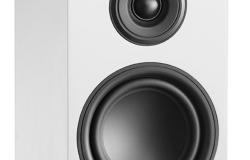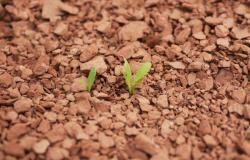
Sneezing, runny nose, itchy throat, itchy eyes… The arrival of sunny days also means the return of pollen allergies, such as this Tuesday, June 5, 2024, where the National Aerobiological Surveillance Network (RNSA) placed almost all of France on red alert. However, certain plants could relieve the symptoms. Here they are.
If, like one in three French people, you are allergic to pollen, you surely have one or more of these symptoms: itchy throat, persistent cough, stuffy nose, difficulty breathing… According to a report from the National Health Security Agency (Anses ), 30% of adults and up to 20% of children are affected by pollen allergies. The number of people affected continues to increase. It has tripled in thirty years. So much so that the World Health Organization estimates that one in two people will be affected by 2050, recalls -.
The National Aerobiological Surveillance Network (RNSA) has also placed almost all of France on red alert this Tuesday, June 5, 2024. “This first week of June promises to be summery, which will encourage the emission of grass pollen,” indicates the network on its website.
But then, how to react to these seasonal allergies? “Certain plants have antiallergic properties, for example they can reduce sneezing and unclog the respiratory tract”, explains Victoria Renaud, herbalist. For greater effectiveness, she recommends taking a preventive course by consuming plants before the start of the allergy season and continuing to take them throughout. Nettle, blackcurrant, plantain… Here are four plants that could be effective.
1. Plantain
Well established in meadows, paths and vegetable gardens and difficult to uproot, plantain is often considered a weed. Recognizable by its leaves which have veins, it is full of virtues. “It’s an anti-inflammatory plant. Faced with seasonal allergies, it is useful because it soothes the respiratory tract, makes breathing easier and calms coughs.explains Victoria Renaud. Antiallergic, plantain also calms allergic reactions. continues the herbalist. You can slip a few plantain leaves into your salads or consume it as an infusion.
However, you must remain vigilant with this plant. France Blue reminds that it is not recommended for pregnant women and children under 3 years old, as it could irritate their respiratory tract.
2. Blackcurrant leaves
While the blackcurrant berries are delicious, its leaves and buds are very useful. They “have anti-inflammatory properties. They can soothe the throat”, according to Victoria Renaud. Like plantain, you can consume blackcurrant leaves as an infusion. For its buds, “you have to macerate them then take them in the form of drops to be diluted in water”explains the herbalist.
3. Nigella or black cumin
Still little known, nigella, also called black cumin, is a flowering plant. Victoria Renaud recommends the use of its seeds to relieve certain symptoms of pollen allergies. In infusion, mixed or in oil, you can easily integrate it into your daily diet, despite its strong taste. “In case of seasonal allergies, nigella can calm asthma attacks”says Victoria Renaud.
4. Nettle
Often hated, nettle has a bad reputation. Yet, “It’s a super plant, with a lot of virtues. It’s an all-purpose herb, it reduces inflammation and calms runny noses.”, explains the herbalist. Nettle infusions are said to be effective against “fountain nose”.
Nettle is also on the list of natural remedies recommended by the Pasteur Institute of Lille to relieve the symptoms of a pollen allergy.
However, we must not forget that no plant replaces traditional medicine. Do not hesitate to consult your doctor who can redirect you to an allergist.
What are the right actions to adopt?
Here are some good actions to adopt to limit the effects of pollen and better cope with crises.
– Do not hang your laundry outside
– Ventilate the house at the end of the day
– Tie up your hair and wear a cap
– Wear sunglasses outdoors
– Shower with clean water
– Avoid driving with the window open





